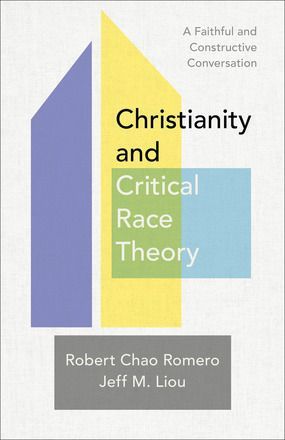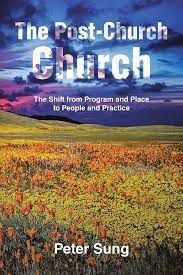On Scripture at RCB
Josh Cramer • April 6, 2024
How we listen to God's Word

This post expands on some things I said in a recent sermon on Exodus 16. I hope it can be helpful for you in understanding what we are doing at RCB.
Scripture is one of the ways that God provides for us. We receive God’s written Word as one way that God speaks to us and shares life and love with us. I want to cast a vision for the ways that we receive the Word at RCB, because we do it differently than lots of other church communities and I think that can cause some tension for those of us who have worshiped other places before. In what I’m saying, I don’t at all intend to say something negative about the ways that other church communities do things, it’s just that we believe that God has called us to do something different.
So, here’s the different thing that we do: we want you to receive the nourishment of God’s Word in several different ways, corresponding to some ways that people learn and grow, and we don’t tend to focus on the sermon as the heart of that nourishment.
First, the heart of our gatherings and the primary way that we collect the nourishment from God’s Word in Scripture is our Emmaus Group
time. That’s where we watch Jesus directly, paying attention to what Jesus did during his life—how he walked, who he talked with, who he argued with, how he led, those he healed, the ways that he loved, and then his final days, his death, and then his resurrection from the dead. We want to wrestle together, to learn to ask good questions together in community, and to learn to listen to God speak to us in Scripture and in one another given the actual questions that we have. This is a kind of discovery learning, where we discover the information together, rather than receiving the information from an expert who has done all the work beforehand.
Next, we also have tried to emphasize the reading of Scripture, so that we have direct access to it. We aren’t trying to do less Scripture here, we are trying to do more, but more of that is read and less of it is explained. I don’t want you to have more of my voice in your head, I want you to have more of God’s voice. So, almost every worship service Sunday, we read from the Hebrew Scriptures, the New Testament, and the Psalms. Every Emmaus Group Sunday, we read from the Gospels. So, we hope that we are all receiving from God’s Word in the Scriptures. And then, we also do occasional Reading Services, where we will spend a lot of time just listening to the Scripture read because that’s the way that it was first heard in community: Paul wrote letters that were then read as whole letters in one sitting. The Gospels were meant to be heard out loud, all in one sitting. The Scriptures were written to be read, heard, and lived.
Finally, we have sermons
that help us to see Jesus from other places in Scripture. Like this one: last week we saw Jesus provide food in the wilderness, so this week I’m picking up on what Jesus did in last week’s passage and looking for how Jesus fulfills an Old Testament passage where God provides food in the wilderness. And we are exploring–what is God’s character like? How is Jesus expressing God’s character? And how do we apply all of that to us today?
We have decided to change the relative emphasis between small groups and the sermon for a variety of reasons, but not because we think sermons are unimportant or ineffective. I love a good sermon and I enjoy preaching. But here are several reasons that we feel called to change the emphases:
First, not everyone listens or learns well from preaching. In fact, we know that lecture-style teaching is good for some things, but not that great for most of us. If you look at studies of how we learn, you see that discovery learning is far more effective for helping people learn. I’ve found that when I preach, I learn a lot more than anyone listening to me can learn. Preaching is a good way to help the preacher learn, but it’s not always a great way to help the community learn. Preaching is okay at passing along information, but it’s not great at formation
in the way of Jesus, which is our goal.
That leads me to my second reason that we have changed the relative emphases. We live in a time when we have access to nearly infinite amounts of information. So, the time when the sermon was the most important way of communicating the truth is past. You have more access to great information and teaching on Scripture than anybody from 100 years ago. And more and more of that information is free and accessible. The BEMA podcast is so informative; the Bible Project has classes, really accessible videos for kids and adults, and a really nerdy podcast; you can get all of Tim Keller’s sermons online; Esau McCaulley, Efrem Smith, Kaitlyn Schiess, Beth Allison Barr, Kristin Kobes Du Mez, Brenda Salter McNeil, Osheta Moore, Rich Villodas, on and on—you can get any number of great teachers to you anytime, anywhere. What a gift!
But with the gift of infinite choices comes choice paralysis, uncertainty about which options are good or helpful or best right now. So, I don’t feel that my job is information, but to participate in God’s work of formation—of serving what God is doing to form us in the way of Jesus. When it comes to great information, I would love to be a resource so that we have wisdom, grace, and discernment about how all these teachers and the information lines up with what we see in Jesus. I’m especially concerned about formation in wisdom—are we living as individuals and as a community in ways that look like Jesus?
And formation in wisdom does not come primarily through sermons. Sermons are decent at passing along information, and for forming us to be consumers of that information. But there are better ways to work toward formation, and so we are working to focus on those kinds of things: small group discussions where we are learning to watch Jesus, listen to Scripture and to one another, and ask better questions of each other and of the Bible; trainings that help us learn and practice loving one another in conflict; learning race history and other practical steps toward living out love for neighbors through justice work. These kinds of things are formative; they form our hearts, imaginations, bodies, and souls so that we can watch Jesus, do what he calls us to do, and be an outpost of his Kingdom in the world.
A final reason we have rethought the place of the sermon at RCB is because of the role of the pastor in a community. We have seen and heard too many stories of abusive pastoral leadership, and while I certainly hope that none of you is coming on Sundays expecting to be abused, the structure of Sundays can set up a power dynamic that can be dangerous for the pastor and for people in the community. I don’t want to be the expert up here that creates a power differential. We want to develop a flat-ish structure that gives voice and power to everyone in the community. My role is to watch Jesus, listen to the Spirit, and empower you.
So, as we are trying to be the community that God is inviting us to be, I hope you will join us! Come with us as we seek to live the way of Jesus for our community by watching Jesus, doing what He calls us to do, and being an outpost of His Kingdom in the world.
In Christ,
Josh

This is how I remember Lent as a kid: go to mass on Ash Wednesday (I have no memory of any sermon, lol), vow to give up something (that lasted as long as a New Year’s resolution), and eat Long John Silver’s fried fish on Fridays (their hushpuppies and crunchies…mmmm). We didn’t eat meat on Fridays (unless we forgot, but we prayed, so it was ok); it was something everyone in the church did, right? I knew it was leading up to Easter--other than that, I had no real understanding or connection to it. Lent was taught more like an obligation rather than an opportunity. An opportunity to reflect, rejoice, rest, repent (what other “r” words can we think of?) on Christ’s journey to the cross. The next 40 days is an opportunity, an invitation to draw closer to the Giver of Life. For some, this might look sacrificial (giving something up), for others it might be a genesis (starting something new), or it can be a combination of the two. “Your kingdom come, Your will be done, On earth, As it is in heaven” Our Lord doesn’t just teach us to pray, he embodies prayer. He inaugurates God’s kingdom on earth through his presence with us; through his faithful obedience, we get to see and experience heaven on earth. This does not come without temptation, and trials, and wandering astray at times—yet our loving God invites. He invites us to remember, to reengage with the One who creates and holds all things; He invites us to lay down our lives and pick up our crosses. We want to invite you to participate with RCB, as we journey with Christ to Calvary, praying for the strength to be obedient… Your kingdom come, Your will be done, On earth, As it is in heaven.









